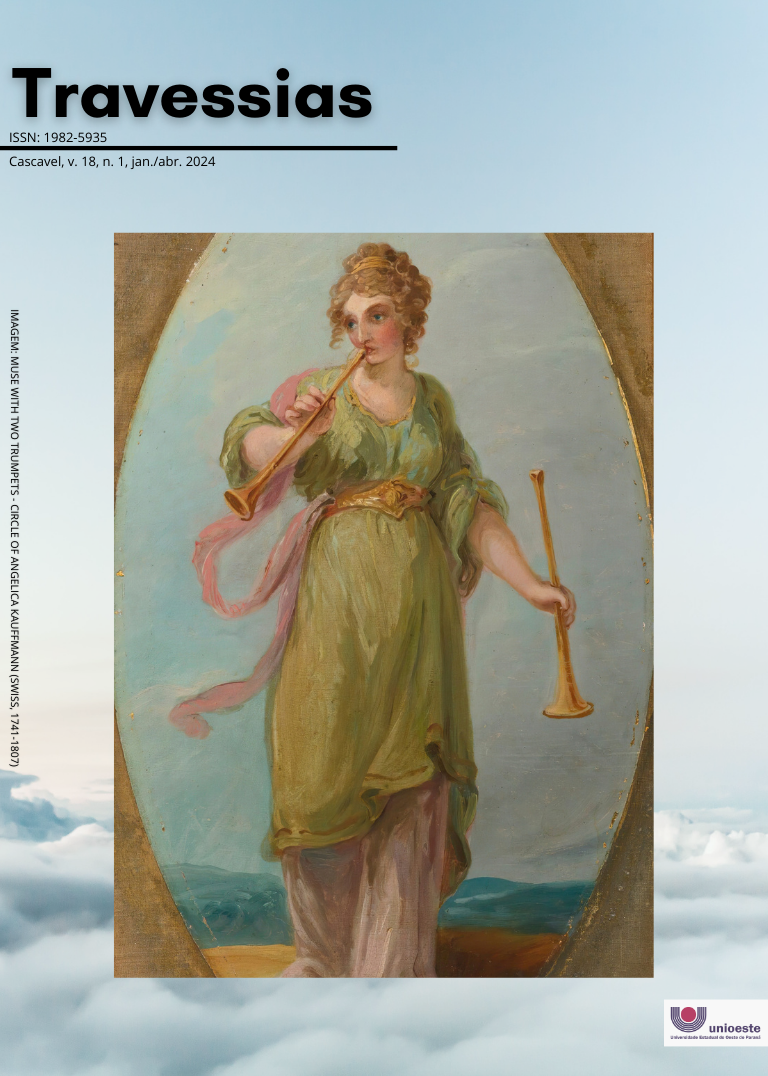The gag
dramaturgy of a conflict
DOI:
https://doi.org/10.48075/rt.v18i1.32148Keywords:
Dramaturgy, University professors, Brazilian public university, WorkoverloadAbstract
This one-act play employs a comic-satirical dramaturgical approach, drawing inspiration from the Theatre of the Absurd, to explore the normalization of precarious work in universities. Set in a contemporary Brazilian public university during a department meeting, the act focuses on the artificiality, fragmented perspectives, and underlying hypocrisy embedded within the characters' discourses. The interactions between these fictional subjects expose historical, social, and ideological issues related to the academic environment, particularly concerning the treatment of university workers. The protagonist challenges the administration's demands for increased workload, which conflict with their contractual agreement. When requesting exemption from these excessive workloads, his demand is redirected to the personal field, as something to be dealt with in the private sphere, obfuscating the collective dimension of the issue. The conversations within the meeting are permeated by strategies that aim to ridicule him, revealing an ideology that systematically denies the labour rights of public servants (out of alienation, cynicism, or nihilism) and represses the ability to critically evaluate the present and plan for the future – aligning with contemporary neo-fascist tendencies.
Downloads
Downloads
Published
How to Cite
Issue
Section
License
Copyright (c) 2024 Authors keep the copyright and grant the journal the right of first publication, with the work simultaneously licensed under the Creative Commons Attribution License (CC-BY-NC-SA 4.0), which allows sharing the trial with acknowledgment of authorship and initial publication in this journal.

This work is licensed under a Creative Commons Attribution-NonCommercial-ShareAlike 4.0 International License.
Creative Copyright Notice
Policy for Free Access Journals
Authors who publish in this journal agree to the following terms:
1. Authors keep the copyright and grant the journal the right of first publication, with the work simultaneously licensed under the Creative Commons Attribution License, which allows sharing the trial with acknowledgment of authorship and initial publication in this journal.
2. Authors are authorized to take additional contracts separately, for non-exclusive distribution of the work version, published in this journal (eg publish in institutional repository or as a book chapter), with acknowledgment of authorship and initial publication in this journal.
3. Authors are allowed and encouraged to publish and distribute their work online (eg in institutional repositories or on their personal page) at any point before or during the editorial process, as this can generate productive changes, as well as increase both impact and citation of the published trial (See The Effect of Free Access).
Creative Commons License
This work is licensed under a Creative Commons Attribution–NonCommercial-shareaswell 4.0 International License, which allows you to share, copy, distribute, display, reproduce, completely or part of the work, since there is no commercial purpose, and authors and source are cited.



